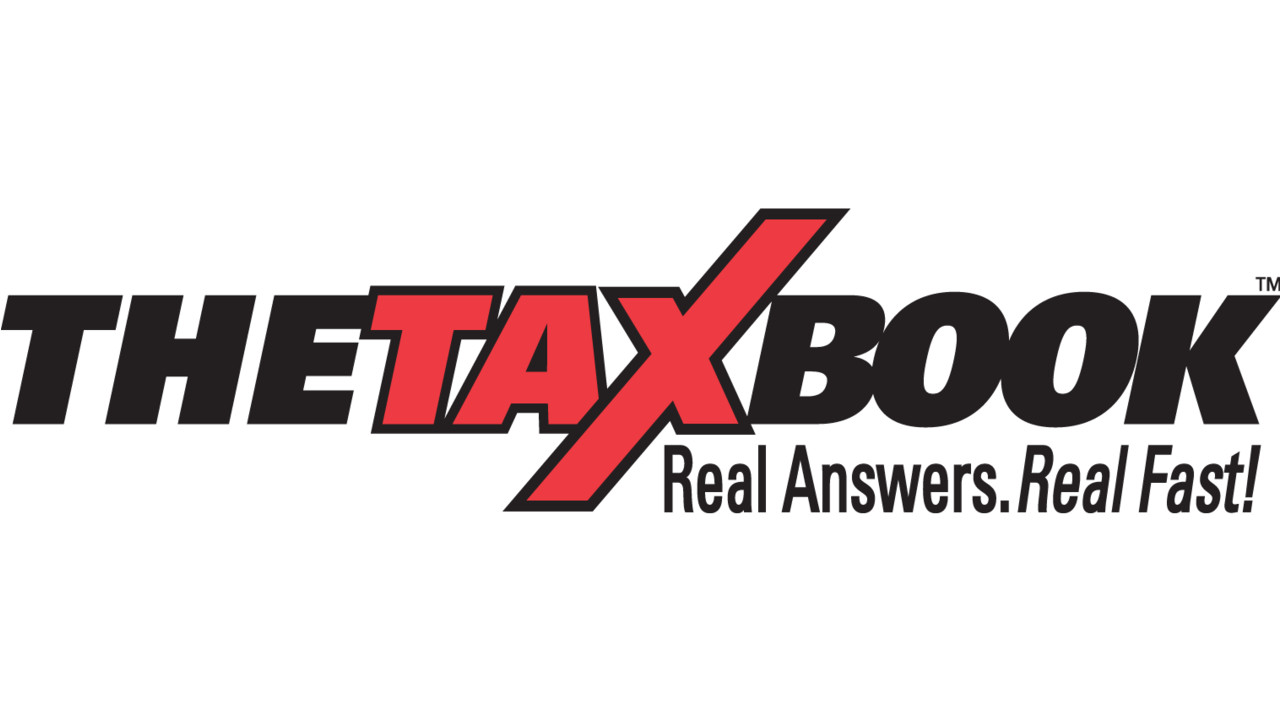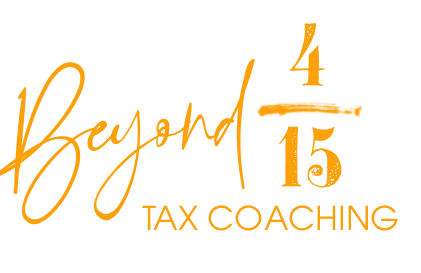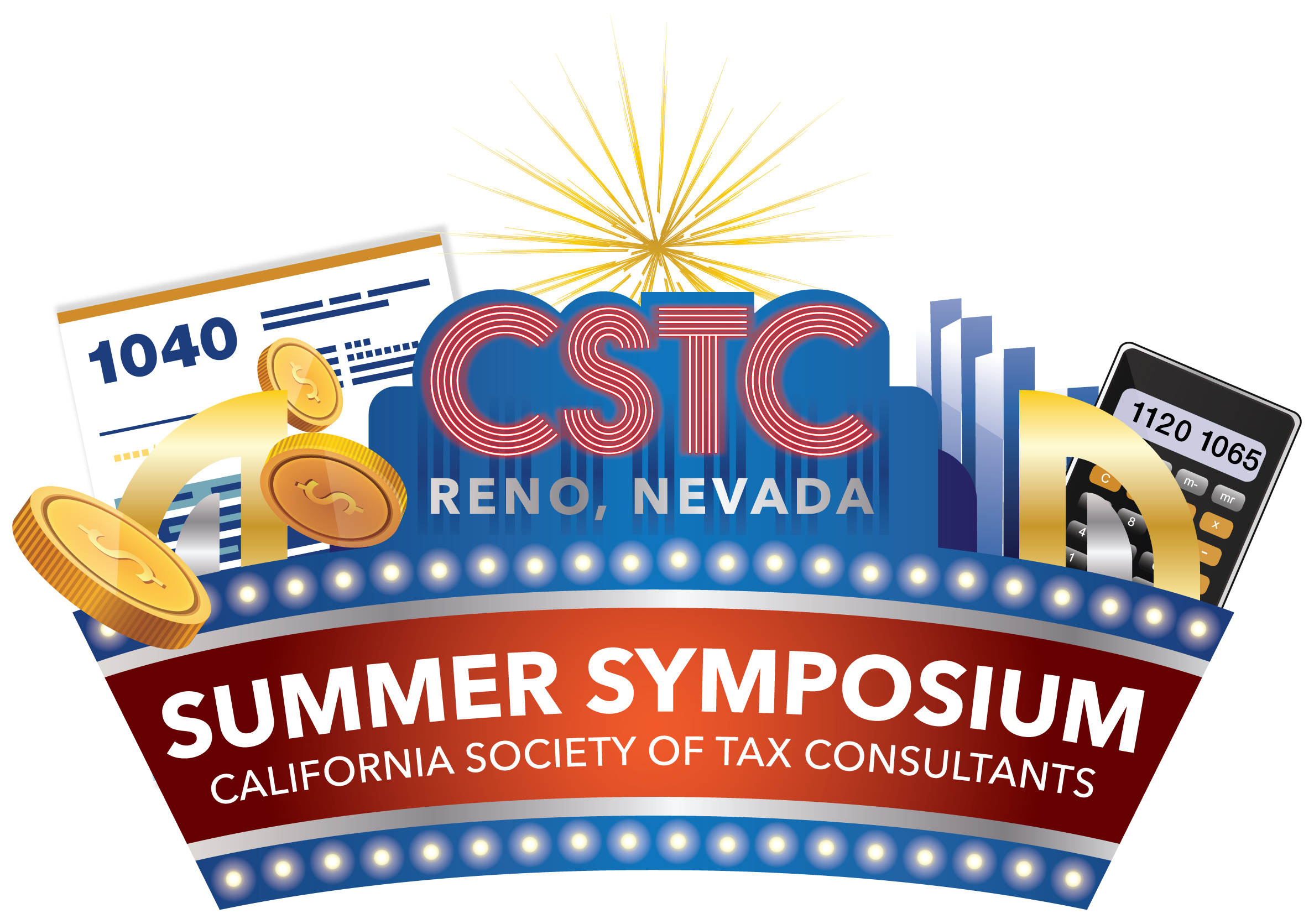|
In This Issue...
- From the President
- 2020 Summer Symposium Registration is OPEN!
- Become a Sponsor at the 2020 Summer Symposium
- March 2020 Chapter Events
- Welcome New CSTC Members
- Legislative Advocacy
- News from the IRS
- Join CSTC!
CSTC Member Benefits

CSTC members have access to benefits such as free payroll processing services for your tax practice, and the opportunity to earn new revenue through their flexible partnership options.

CSTC is pleased to include the VeriFyle ProTM premium secure online document and message sharing service at no cost to CSTC members!

Wolters Kluwer: Discounts on Tax, Accounting & Audit Resources, Software, Information & Services.

CSTC members receive the TaxBook WebLibrary at a special price
Other Member Benefits Include:
$ Savings on all Society Educational Events
$ Savings on Contact, Correspondence & Self Study Education
$ Savings with member specialty CSTC Connects (previouslyYellow Pages) list
$ Savings with E & O Insurance, plus specialty coverage relevant to your profession
$ Online CSTC Find-a-Tax Consultant search to help promote your business!
$ CSTC Member Listserv

Office Depot has partnered with us to provide exclusive savings in-store and online, plus fantastic additional benefits. This program is all about providing preferred pricing to our clubs, and the savings extend to almost every item.
Savings include 20% to 55% off item office supply core list, 20% to 55% off retail on cleaning & break room items, 10% off branded; 20% off private brand ink & toner core list, Average 10% off retail on 200 technology core items, Free next-day shipping on orders of $50 or more, and SIGNIFICANT savings on copy & print. Become a CSTC member to sign up for our Office Depot Small Business Savings Program, administered by Excelerate America.

We are a professional full-service tax advisory firm in San Diego. Our goal is to provide a level of service for our clients that will exceed expectations in every possible way. We strive to offer a diverse level of services to meet the needs of the diverse community we have been working in for more than 30 years.

TaxMama's® EA Exam Course prepares tax professionals to do so much more than just pass the IRS' Special Enrollment Examination. This is an in-depth course that teaches tax law from the ground up. It explains how tax returns work, with examples of basic 1040s, Schedule Cs, 1065s, 1120s, and 1120Ss; you learn tax law, tax research, client representation for audits, appeals and collections.

If you are interested in buying or selling a practice, contact us today! ATB is operated by Enrolled Agents ensuring a complete understanding of our profession. Please give us a call at (855) 428-2225 or visit us online at www.ATBCAL.com for more information and to view our current listings.
CA DRE 02002824
CSTC Mission
CSTC advances professionalism within the tax industry by:
- Providing quality education
- Creating networking opportunities
- Advocating professional standards
|
From the President
SAY WHAT?
Is it okay to talk to yourself? Is it okay to ask yourself questions? According to  Zig Ziglar, a wonderful personal development mentor, it is okay to talk to yourself as long as you don’t find yourself saying, “What?” Think about that. You are having a great conversation with yourself rattling around some ideas or concepts that you’d like to develop or further understand and suddenly you find yourself saying “what?” What happened? Did you lose your train of thought? Did you forget what you were talking to yourself about? Did you become distracted? Zig Ziglar, a wonderful personal development mentor, it is okay to talk to yourself as long as you don’t find yourself saying, “What?” Think about that. You are having a great conversation with yourself rattling around some ideas or concepts that you’d like to develop or further understand and suddenly you find yourself saying “what?” What happened? Did you lose your train of thought? Did you forget what you were talking to yourself about? Did you become distracted?
According to Kim Scott, author of the book “Radical Candor”, to be able to develop relationships and communicate effectively with people we need to create a culture of open communication. A big factor in creating a culture of open communication is to show that we are interested in what the other person is trying to communicate. If we are distracted by any of 5 million things that are going on at the same time in our lives, and that distraction prevents us from focusing on communicating with the person that we are with, we are creating the opposite of open communication. We would be closing off the communication channel and shutting off the development of relationships.
Doesn’t it seem to you that we hear quite a bit of blame being placed on “that millennial generation”, or “that generation X”, or “that generation Z”, for not being able to have effective open communication and relationships? We look at electronic devices that the younger generations haul around and blame their obsession with electronics for the lack of open communication. It doesn’t take much to step back and realize that it has very little to do with generation M or X or Z and it has everything to do with every generation. Whether you are like my 85-year-old dad using email, Facebook, Snapchat, and telling Alexa what to do, or like my four-year-old granddaughter talking to me on FaceTime, sending me a Snapchat, or telling Alexa what to do, we all are faced with the same electronic distractions. Electronic distractions do not care how old you are, they are everywhere and affect everyone. In fact, it does not do any good to try to get rid of them or shut them all out because you will miss out on wonderful communications that otherwise would not happen.
The key to developing a culture of open communication and therefore a culture where personal relationships take priority is to get control over all of our electronic distractions, devices, and methods of electronic communication. I’m a big advocate of electronics. I love my FitBit, my cell phone, my computer, my laptop, my iPad, my e-mail, and my Alexa (purely platonic) but it is super important that I control them and use them as tools and not vice versa. Most of the time when I hear myself say “what?” in the midst of talking to myself, it is because I received a text, a notification, or some other cool electronic flash that caught my attention. It’s awesome how quickly electronicy things (I made that up) catch my attention and how often I find myself saying “what?” to myself. It can be quite annoying in fact.
Controlling outside electronic influences is a constant battle. However, according to Todd Duncan, motivational speaker and American author of the book “Time Traps”, controlling electronics in our lives is THE key to business and personal success. Every day exciting new electronics are created and more and more things are created to distract us from good personal open communication. Deciding each day to take control of electronics and make them our tools, then our masters is a thrilling adventure. A productive, beneficial, and worthy adventure.
My 2020 plan is to be intentional with how I use and master electronics and electronic communications. I am committed to being respectful of others’ time by recognizing that we are all in the same boat electronically. I may want an answer immediately, but I cannot expect one, that is not a fair demand on someone with a full plate. (That’s everyone I know).
Speaking of open communication, it is nearing the time to put in your nominations for CSTC officers and Directors. Please watch for CSTC official emails calling for nominations and respond timely. Please be sure to nominate yourself to help out any way you can.
Thank you for being tax professionals and helping your clients and fellow tax professionals. Let’s make 2020 a wonderful year for CSTC. Bring your friends, associates, and families to CSTC. Let them see what a fantastic network of professionals we have and encourage them to join us in our quest to “improve the tax industry one professional at a time”.
Your friend and President,
Gary Quackenbush

2020 Summer Symposium Registration is OPEN!
Diversity best describes both the subject matter and tax professionals who will be attending the 2020 CSTC Summer Symposium. Offering 72 hours of continuing education over a three-day schedule, the agenda is packed with topics including representation, QBI, business entities, AB-5, trusts, California tax, SECURE Act, practice management and more. Industry-leading presenters will include representatives from the IRS and FTB. You will also have access to exhibitors who will share products and services to propel your practice to the next level.
CSTC education is designed for CTEC preparers, Enrolled Agents, CPAs, and attorneys and to fit the needs of all – from new preparers to highly experienced tax professionals. With one of the most affordable price points for educating tax professionals, we encourage you to explore how the CSTC Summer Symposium should be a must-attend for 2020.
We look forward to helping your career when we see you at the 2020 CSTC Summer Symposium.
Click here to learn more!

| |
Sunday, June 7, 2020
|
| 3:00pm |
Registration Opens; Exhibitor Set-up |
| 5:20pm-6pm |
Welcome Reception for First Time Attendees |
| 6:00pm-9:00pm |
Welcome Dinner
This event is family-friendly.
(Included with full registration. Guest registration is $40) |
| |
Monday, June 8, 2020
|
| 6:30am-5pm |
Registration and Exhibits |
| 7:30am-9:00am |
Session 1: IRS Keynote Presentation and Breakfast
Speaker TBA |
| 9:15am-10:05am |
Breakout Sessions (all sessions will continue after the break): |
| |
Session 2: 199A - Maximizing QBI
Jane Ryder, EA, CPA
|
| |
Session 3: IRS Installment Agreements: A to Z
Veronica Marelli, EA
|
| |
Session 4: IRS Audit & Appeals Representation – Problem Issues of Schedule C
Anthony D. Bustos, EA
|
| |
Session 5: Dear Younger Me: Basics for the Newbie's
Claudia Stanley, CPA, EA
|
| 10:05am-10:20am |
Break with Exhibitors |
| 10:20am-12:00pm |
Breakout Sessions (continued from before the break): |
| |
Session 2 Continued: 199A - Maximizing QBI
Jane Ryder, EA, CPA
|
| |
Session 3 Continued: IRS Installment Agreements: A to Z
Veronica Marelli, EA |
| |
Session 4 Continued: IRS Audit & Appeals Representation – Problem Issues of Schedule C
Anthony D. Bustos, EA |
| |
Session 5 Continued: Dear Younger Me - (Series - Sch A, Sch C, Sch E)
Claudia Stanley, CPA, EA |
| 12:00pm-1:20pm |
Annual Business Meeting Luncheon
(Included with full registration) |
| 1:20pm-3:00pm |
Breakout Sessions: |
| |
Session 6: California Update - What's new for 2020 and what did you miss for 2019 (course repeated on Tuesday)
Karen Joyner, EA
|
| |
Session 7: Community Property State Tax Issues
Susan Tinel, EA
|
| |
Session 8: Form 1041: A roadmap to preparing the fiduciary return
Monica Haven, EA, JD, LLM
|
| |
Session 9: Understanding Criminal Tax Prosecution
Michael Blue, Attorney at Law
|
| 3:00pm-3:20pm |
Break with Exhibitors |
| 3:20pm-5:00pm |
Session 10: Love and Marriage
Eva Rosenberg, EA, MBA
|
| |
Session 11: Audit Reconsideration
LG Brooks, EA, CTRS
|
| |
Session 12: Employees After Dynamex, AB-5, and Beyond!
Frank Acuña, Attorney at Law
|
| |
Session 13: Secure Act – Part of the Further Consolidated Appropriations Act, 2020
Karen Joyner, EA
|
| 5:00pm-6:00pm |
Reception with Exhibitors |
| 6:00pm |
Evening on Own |
| |
Tuesday, June 9, 2020
|
| 6:30am-5pm |
Registration and Exhibits |
| 7:30am-9:00am |
Session 14: California Keynote Presentation and Breakfast
Speaker TBA
|
| 9:00am-9:15am |
Break |
| 9:15am-10:05am |
Breakout Sessions (all sessions will continue after the break): |
| |
Session 15: Appealing Decisions - Audit, OIC, Tax Court, Bankruptcy Court, Federal District Court
Gary Quackenbush, Esq |
| |
Session 16: Business Entity Balance Sheets & Basis
Jane Ryder, EA, CPA |
| |
Session 17: LLC Classifications & Elections
Susan Tinel, EA
|
| |
Session 18: Discovering the Life Cycle of a Non-profit Organization
David Eastis, CRTP
|
| 10:05am-10:20am |
Break with Exhibitors |
| 10:20am-12:00pm |
Breakout Sessions (continued from before the break): |
| |
Session 15 Continued: Appealing Decisions - Audit, OIC, Tax Court, Bankruptcy Court, Federal District Court
Gary Quackenbush, Esq |
| |
Session 16 Continued: Business Entity Balance Sheets & Basis
Jane Ryder, EA, CPA |
| |
Session 17 Continued: LLC Classifications & Elections
Susan Tinel, EA |
| |
Session 18 Continued: Discovering the Life Cycle of a Non-profit Organization
David Easts, CRTP |
| 12:00pm-1:20 pm |
Lunch on own |
| 1:20pm-3:00 pm |
Breakout Sessions: |
| |
Session 19: Dealing with Intellectual Property After TCJA
Curt Harrington, Attorney at Law, EA
|
| |
Session 20: S Corporation Taxation Issues
Cliff Leiker, CPA
|
| |
Session 21: California Update - What's new for 2020 and what did you miss for 2019 (REPEAT FROM MONDAY)
Karen Joyner, EA
|
| |
Session 22: Collection Due Process Tax Matters
LG Brooks, EA, CTRS
|
| 3:00pm-3:20pm |
Break with Exhibitors |
| 3:20pm-5:00pm |
Session 23: What to Do With an A/B Trust That No Longer Makes Sense
Frank Acuña, Attorney at Law
|
| |
Session 24: Shannon's Hall of Tax Curiosities - Curiouser and Curiouser
Shannon Hall, EA
|
| |
Session 25: The Tax Consequences of Choice: Options, Futures, Rights & Warrants
Monica Haven, EA, JD, LLM
|
| |
Session 26: Rethink What you Know about Tax, Wealth & Business Exit Planning
Edward Cotney, Certified Exit Planner, Certified Philanthropic Developer, Family Wealth Counselor
|
| |
Wednesday, June 10, 2020
|
| 6:30am-5pm |
Registration and Exhibits |
| 7:30am-9:00am |
Session 27: Breakfast Presentation - Reading Between the Lines - How to Identify What Your Client Hasn't Told You
Eva Rosenberg, EA, MBA
Class to continue after the break |
| 9:00am-9:15am |
Break |
| 9:15am-10:05am |
Session 27 Continued: Breakfast Presentation - Reading Between the Lines - How to Identify What Your Client Hasn't Told You
Eva Rosenberg, EA, MBA
|
| 10:05am-10:20am |
Break with Exhibitors |
| 10:20am-12:00pm |
Breakout Sessions: |
| |
Session 28: IRA Fundamentals, IRA Trusts, and the Secure Act
Frank Acuña, Attorney at Law |
| |
Session 29: Filing the Non-Filer
Veronica Marelli, EA |
| |
Session 30: Interest Income, Expense & Deductions for Individuals, Investment and Businesses
Jane Ryder, EA, CPA |
| |
Session 31: IRS Notices - Recognition & Response
LG Brooks, EA, CTRS |
| 12:00pm-1:20pm |
Lunch on Own |
| 1:20pm-3:00pm |
Session 32: Stump the Tax Experts
|
| 3:00pm-3:20pm |
Break |
| 3:20pm-5:00pm |
Session 33: Tax Professional Issues - ETHICS
Gary Quackenbush, Esq
|
| 5:15pm |
Grand Prize Drawing |

Become a Sponsor at the 2020 Summer Symposium
CSTC’S premier educational event is the Summer Symposium. The Symposium offers three days of tax educational programming and networking opportunities for tax professionals. The Symposium is known for industry-leading speakers, influential governmental representatives, and a diverse audience that includes preparers from outside of California. Those in attendance will include CTEC preparers, Enrolled Agents, CPAs, and attorneys. The 2020 Summer Symposium will be held June 7-10, at The Silver Legacy Hotel in Reno, Nevada.
The Symposium, and the marketing efforts leading up to the Symposium, are all great opportunities to expose your brand and its product offerings to tax professionals. This can be made possible by becoming an exhibitor or sponsor to the 2020 Symposium. Please read on to learn how.
As an exhibitor and or sponsor, CSTC will expose your company to the list of PTIN holders in California and neighboring states to an audience approaching 56,000 tax professionals. We offer this exposure during CSTC sponsored educational events as well as year-round exposure through our website, cstcsociety.org, our monthly e-newsletter “The Reporter”, and through email advertising promoting the Symposium.

March 2020 Chapter Events
March 1, 2020
Topic: Round Table Discussion
San Gabriel Valley Chapter Round Table
2 Federal Tax Law Hours
Topic: Ethics OR Round Table Discussion
Central Valley Chapter Meeting
1 California Hour
2 Ethics Hours
3 Federal Tax Law Hours
March 3, 2020
Topic: NCSD Breakfast Meeting
North County San Diego Chapter Meeting
1 California Hour
Topic: NCSD Round Table Luncheon
North County San Diego Chapter Meeting
1 Federal Tax Law Hour
March 5, 2020
Topic: Share and Solve Breakfast Meeting
Temecula Valley Chapter Meeting
1 Federal Update Hour
March 8, 2020
Topic: Round Tale Discussion - 2019 Tax return / Issues / Resolutions
Greater Long Beach Chapter Meeting
1 Federal Update Hour
1 California Hour
1 Federal Tax Law Hour
March 10, 2020
Topic: NCSD Breakfast Meeting
North County San Diego Chapter Meeting
1 California Hour
Topic: NCSD Round Table Luncheon
North County San Diego Chapter Meeting
1 Federal Tax Law Hour
March 12, 2020
Topic: Share and Solve Breakfast Meeting
Temecula Valley Chapter Meeting
1 Federal Update Hour
March 17, 2020
Topic: NCSD Breakfast Meeting
North County San Diego Chapter Meeting
1 California Hour
Topic: NCSD Round Table Luncheon
North County San Diego Chapter Meeting
1 Federal Tax Law Hour
March 19, 2020
Topic: Share and Solve Breakfast Meeting
Temecula Valley Chapter Meeting
1 Federal Update Hour
March 22, 2020
Topic: Round Tale Discussion - 2019 Tax return / Issues / Resolutions
Greater Long Beach Chapter Meeting
1 Federal Update Hour
1 California Hour
1 Federal Tax Law Hour
Topic: Tax Season Sunday Brunch
Orange County Chapter Meeting
1 Federal Tax Law Hour
March 24, 2020
Topic: NCSD Breakfast Meeting
North County San Diego Chapter Meeting
1 California Hour
Topic: NCSD Round Table Luncheon
North County San Diego Chapter Meeting
1 Federal Tax Law Hour
March 26, 2020
Topic: Share and Solve Breakfast Meeting
Temecula Valley Chapter Meeting
1 Federal Update Hour
March 31, 2020
Topic: NCSD Breakfast Meeting
North County San Diego Chapter Meeting
1 California Hour
Topic: NCSD Round Table Luncheon
North County San Diego Chapter Meeting
1 Federal Tax Law Hour
Click here to view the CSTC calendar.
Welcome New CSTC Members!
Please help us in joining our newest CSTC Members!
Barbara Ginsburg
San Francisco Bay Chapter
Maria Perez
San Francisco Bay Chapter
Ismat Sadruddin
San Francisco Bay Chapter

Legislative Advocacy
CSTC has been the leading Association in supporting legislation to provide protection for our profession, to support our profession, and to enhance our profession. CSTC continuously leads our industry through legislative advocacy, educational opportunities, and professional inclusion.
CSTC works closely with a Legislative Consultant to keep an eye on important bills that would affect taxpayers and small business owners.
Please click here to view the bills that CSTC is currently monitoring.

Join the California Society of Tax Consultants!
Click here to fill out an online application.
CSTC advances professionalism within the tax industry by:
- Providing quality education
- Creating networking opportunities
- Advocating professional standards
|